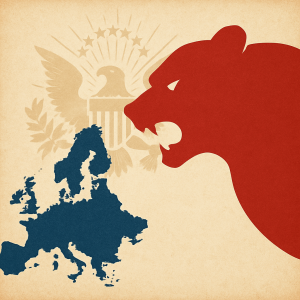We were six; we will soon be thirty-six and one day even more. We cannot see it because it remains inconceivable, but by going to Kiev to say that they were in favour of granting Ukraine candidate country status as early as this week, the French and Romanian Presidents, the German Chancellor and the Italian President of the Council have in fact paved the way for the complete unity of the European continent, from Lisbon to Vladivostok.
Because eventually, the day when nine more states, Ukraine, Moldova, Georgia, Macedonia, Albania, Montenegro, Serbia, Kosovo and Bosnia-Herzegovina, join the Union, we will inevitably have to define the future links between this Union of 36 and its Turkish and Russian neighbours.
It is possible that a democratised Turkey could then join the European Union. It is much less likely that the Russian Federation, even if it has emerged from dictatorship and is firmly anchored in democracy, will take this step, given that this country is so vast and will remain attached to the assertion of its autonomy for a long time. We do not know yet, since we do not even know how and when the war in Ukraine will come to an end, but everything will end up with the Union of 36 and its two neighbours in one ensemble structured by security and cooperation agreements.
On that day, the continent of Europe will be one of the three main players on the international scene, along with the United States and China, and this must be done because it is in the interest of Russia, which would otherwise end up being vassalized by China, in the interest of Turkey, which has been pushed from all sides to join Europe for two centuries, and in the interest, of course, of the Union, whose security will never be guaranteed without a lasting agreement with its two eastern neighbours.
Political needs, geographical logic and economic complementarities, everything dictates to the Union to make pan-European unity its long-term strategic objective, but how to ensure the success of such a difficult and uncertain undertaking?
The first thing to do is not to let Russia lose itself in imperial nostalgia that would quickly plunge the whole of Europe into endless wars and for this reason, to stand up against the denial of Ukrainian independence. As Emmanuel Macron said in Kyiv, Ukraine must have the means to “resist and prevail”, not so that Russia can be brought down, but so that the intangibility of borders and respect for national sovereignty can once again become the rule on our continent.
The second thing to do is to successfully integrate the nine countries knocking on the door of the Union without paralysing the European institutions. At the same time, we must not relegate these countries in the antechamber of the Union for twenty years or more, and yet not exempt them from respecting the political, economic and environmental standards that are now those of the 27.
This double injunction may seem contradictory, but it is in fact only contradictory if we persist in refusing to reinvent the Union into a multi-speed Europe with different levels of integration. The Union should thus become a three-stage rocket with a top level formed by the political union of states wanting to go further and faster in terms of defence, foreign policy and investment in future industries. At the second level would be the countries wishing to remain with the Union as it is today, but strengthened by the refusal of fiscal dumping and the generalisation of the single currency. Finally, the first level would be made up of the new Member States that would join the single market by obliging themselves to respect the norms of the rule of law and the principles of the Universal Declaration of Human Rights.
Any country could of course move from one level to another as soon as it was eligible, and this enlarged Union formed by the three levels of the European Union could then address Russia to tell it that we have no hostility towards it, that we do not want to annex a single square centimetre of its territory and that we wish, on the contrary, to develop ever closer, trusting and mutually beneficial relations with it.
We must not, in a word, simply grant Ukraine candidate status. At the same time, we must do everything that this step obliges us to do: firstly, to help Ukraine repel the aggression it is suffering; secondly, to completely rethink the Community institutions; and thirdly, to say to Russia – to all its generations, regions and social circles – that we have to build our common continent, Europe, our common home, together.



